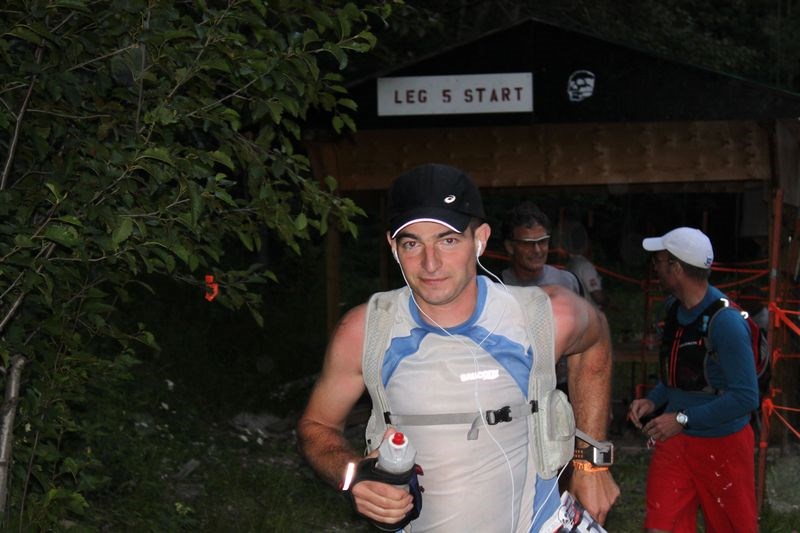As a four-time survivor of the Canadian Death Race, Jeff Hunter has learned to expect the unexpected while testing the limits of his own endurance in the annual off-road ultramarathon.
But nothing in his extensive racing resume could prepare him for what he witnessed three hours into the 125-kilometre race last weekend in Grande Cache, Alta.
Hunter was in the midst of tackling a steep pitch on a rocky trail on the second leg of the five-section course when he noticed two riders on a quad recording video of his climb. Suddenly, he saw the quad's front end leave the ground, tipping over backwards with the frantic riders trying in vain to keep their machine from flipping. Hunter made a desperate attempt to throw his weight on the machine to prevent the rollover but couldn't stop it and both men were left pinned underneath.
"It was on a bit of side hill and the guy kind of miscalculated a bit and I was holding on to the front of it, trying to keep it from rolling over backwards and I couldn't hold it," said Hunter.
"I thought it killed the guys, or seriously hurt them. The machine was on top of them and I held on to it and waited for another runner and we kind of checked them out and they seemed OK. I don't know how you survive that."
Other than that one scary incident, Hunter's race went off without a hitch. He posted his best-ever result, finishing sixth out of 500 in the solo race in a time of 15 hours one minute four seconds, the second-highest finishing Canadian runner.
"Lots of things went my way in the race this year, so I was happy about that," said the 35-year-old Hunter. "It was tough conditions. It was two degrees in the morning so it was tough to know what to wear but it ended up getting pretty hot during the day [23 C], but it was good because there were lots of creeks running along the trail so you could stop and cool down.
"There were a few sections of water you had to cross, one that surprised us near the end of Leg 4 where the bridge was out. The trail markers went across the river and came up the other side. That one was waist-deep."
The Death Race begins and ends in Grande Cache, 145 kilometres northwest of Hinton. The course passes over three mountain summits and several valleys, with 17,000 feet of elevation change. Only 10 per cent of the race is on pavement and rest passes over fire roads, single-track trails, alpine meadows and scree slopes.
"It was raining for the second half of the race, so you're wet almost the whole time," he said.
The race started at 8 a.m. and Hunter finished at 11 p.m., about an hour after dark. Last year he finished 10th.
"I managed to get across the river in the light, which I didn't do last year, then you do about a 1,000-foot climb out of the river valley," he said.
"The last 24 kilometres is really kind of windy trail and you're running in the dark, dizzy and confused and very exhausted, so you get really disorientated. It's like you're doing loops and circles, but it's good. When you get to the end you can start pushing harder."
Having had a few days to recover, Hunter is back at his job as information officer for the Northern Health Authority and he's thinking about his next race, the 54-km Walk in the Park off-road race, Sept. 4 in Kamloops. He also plans to enter the Pine to Palm 100-mile event in Oregon, Sept. 17 to 18, a race that covers 30,000 feet of elevation change.



